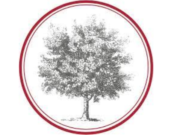Here at CCP, we’ve long been engaged in weighing the costs and benefits of disclosure. A new study conducted by Raymond La Raja, Associate Professor of Political Science at University of Massachusetts, Amherst, has the potential to expand our understanding of disclosure laws by demonstrating how they affect donors’ willingness to make campaign contributions. La Raja’s study finds that disclosure causes small donors to both be less willing to donate and to donate in smaller amounts to avoid disclosure. Additionally, the study finds that these effects are strongest among citizens with personal networks that expose them to different views (the study calls them “cross-pressured”) and weakest among citizens surrounded by people with like-minded views.
While these findings may seem intuitive, they fill an important gap in the existing research on the costs of disclosure. Previous research has established that disclosure laws impose significant and disproportionate costs on volunteer-run organizations, and anecdotal evidence shows that disclosing donors enables harassment, but La Raja’s study provides some of the first data on how disclosure impacts donors directly.
The study contributes further to the body of disclosure research by examining social influence within the context of disclosure. Research has long shown that an individual’s decision to participate in politics is heavily influenced by personal networks, meaning that people who are surrounded by others with similar views are more likely to become politically active than those who are surrounded by people with diverse or opposing views. (For deeper reading on this topic, see La Raja’s review of the literature on this subject, found in the section titled ‘Social Influence and Political Participation’). La Raja’s study separately analyzes the effects of disclosure on three groups of people: those surrounded by the “same” views, those surrounded by “somewhat different” views, and those surrounded by “very different” views. Disclosure had the strongest deterrent effect on contributions from people who live around others with “very different” views.
This is an important finding because it suggests that disclosure laws may increase the overall partisanship of political donors by deterring people with diverse social networks from contributing. Past research has shown that large donors are ideologically and demographically unrepresentative of the rest of the country, exacerbating concerns about disclosure’s deterrence of would-be small donors with diverse personal networks who are generally more representative of the country.
Another factor making this problem worse today than it would have been ten or twenty years ago is the growth of the Internet. As La Raja notes, “the ease with which the Internet assembles and spreads information about political activity can make non-voting forms of engagement a dicey proposition. By divulging political acts, which were previously secret, the Internet conceivably makes it harder for individuals to separate their various social roles. The small act of making a $100 contribution to a favored candidate or cause has the potential to threaten social ties in a local community, or even affect the ability to get work, if information about these contributions is easily accessible. For some, the social cost of participation may appear too high compared to the benefit of political participation.”
No longer does accessing disclosure data require a person to travel to a government office and physically search through records. Now you don’t even need to leave your home. As the transaction costs of disclosure information fall, the social costs of donating rise. Given that large donors are likely to be in social circles that protect or encourage their activity, disclosure provisions are likely to have little effect on them and a greater effect on small donors that are more representative of average Americans.
This shows an often understated risk of disclosure: it could lead to people with moderate backgrounds abandoning the realm of political speech entirely, leaving it to be dominated by partisans living in homogenous networks that reinforce their views (commonly called a ‘bubble’). While disclosure advocates like to portray the need for everything political to be public, it’s hardly a novel perception that many people like to avoid broadcasting their views on issues that could strain their relationships with employers, co-workers, their family, or community. Policymakers will have to carefully consider if they really want to fashion a world where the only people who participate in politics are the ones who do so shamelessly.














